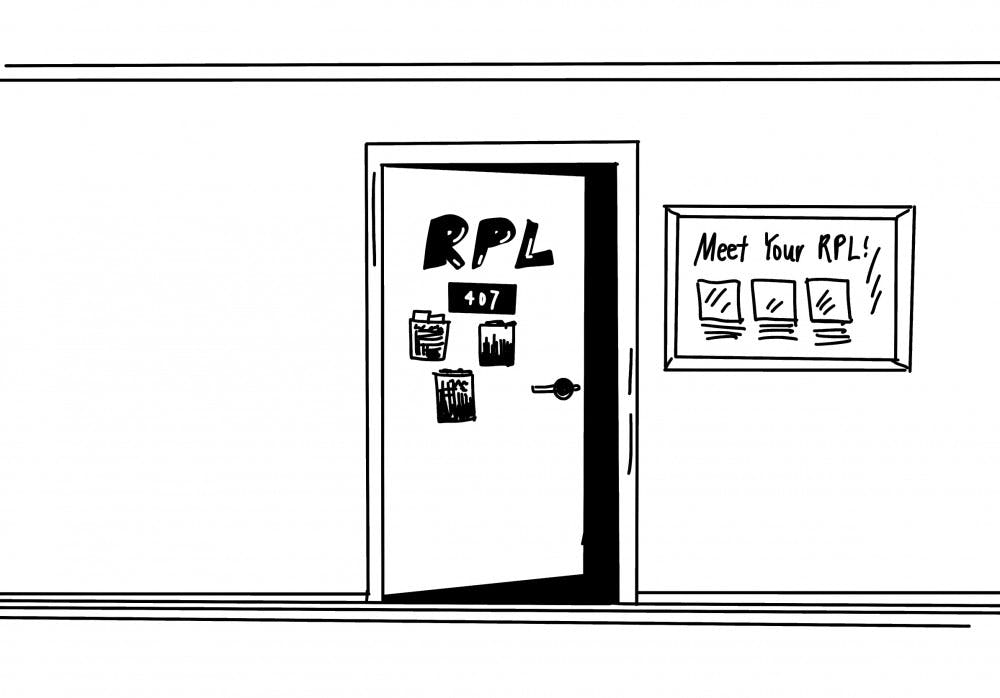Residential Peer Leaders will receive a 20 percent increase in their stipend for the coming school year, along with an added responsibility to assist students who have been locked out of their dorms.
The raise, which is the first major one since September 2017, comes after extensive feedback from RPLs that their compensation was inadequate. But current RPLs are concerned that an ambiguous new clause in their job description stipulating that they must support residents “by assisting in … lock-outs and other critical functions, as needed” may cause them significant inconveniences.
The 20 percent raise to RPLs’ stipends is not specifically tied to the changes to the RPL job responsibilities, according to Vice President of Campus Life and Dean of Students Koren Bakkegard.
When Bakkegard spoke with RPLs about how to improve their position last August, many advocated for increased compensation, especially as the University does not cover room and board like many other institutions do for their residential advisors. The RPLs’ concerns were “something that I took to heart,” Bakkegard said.
But Bakkegard wanted to restructure the current lock-out protocol, and since this has been incorporated into the RPL role for next year, she recognized “that was going to be an added responsibility” for RPLs, she said.
Since the specifics of the new system for assisting with lock-outs have not yet been determined by the Office of Residential Life, ResLife is planning on spending the semester deciding and solidifying plans on how exactly the system will work, Bakkegard said.
Currently, the Department of Public Safety handles lock-outs. Students in need of assistance can call DPS at any time to be let back into their rooms or dorm buildings. This policy has come under criticism from students, with many questioning the necessity of police officers entering student residences during often vulnerable moments, and some citing concerns about racial dynamics between police and students in minority groups, said a current RPL who The Herald will refer to as Nico, because RPLs are discouraged from speaking with the media by the University.
The change to how lock-outs are handled is in line with policies currently in place at the vast majority of other universities, Bakkegard said. At many peer universities, resident advisors take on a larger role, which includes rule enforcement and room checks. But the Residential Peer Leader program in place at Brown prioritizes trust between students and RPLs, so RPLs have not had access to students’ room keys up to this point. This policy could change if RPLs begin assisting with lock-outs.
Student residents and RPLs had been pushing for a change to the current system, but had not been advocating involving student staff, said a current RPL who will be referred to as Alex.
Many RPLs are concerned about the current ambiguity surrounding what their role will be in assisting with lock-outs. Some worry that, under the new system, they will have to be on call for 24 hours at a time, precluding them from being able to leave campus or attend to their other obligations as students, Alex said.
But Bakkegard rejected this possibility. “They certainly wouldn’t have to be awake (all night). This comes back to that question of how we’ll ultimately enact and implement the plan.”
RPL applications for the coming school year closed on Feb. 5, before these questions could be settled. “It’s a major change to our job description, and for anyone that wants to return, the deadline to accept that new job is early March,” Alex said. “It was confirmed by (Bakkegard) that (the plan) will essentially not be ready by then, so we’re expected to agree to a job without fully understanding what the responsibilities would be,” and this factor may be significant for students looking to become RPLs, Alex added.
ResLife decided to include the clause on assistance with lock-outs in the job description so that prospective RPLs would be aware of the upcoming change in responsibilities for the Fall 2020 semester, Bakkegard said.
But the Division of Campus Life did not initially alert RPLs directly to the changes in the job description. “If I had a do-over I would’ve been providing that information before the application” was released, Bakkegard said.
Bakkegard sent a Jan. 28 email to RPLs notifying them of the change. Later that day, Bakkegard attended a previously scheduled meeting for all RPLs where she addressed them and fielded questions. Several RPLs were left dissatisfied with the meeting, citing the lack of plans in place for exactly how lock-outs would be dealt with. “The language that they used in the recent meeting with us is that we’ll be asked to assist with lock-outs, but that could mean a number of things,” said an RPL who The Herald will refer to as Casey. “They sent her out there to face the wolves, so to speak, and it was a very uncomfortable meeting,” Casey added.
Several RPLs told The Herald they wanted to be part of the decision-making process for how lock-outs will be handled, but expressed skepticism. “I don’t have a lot of faith that they’re actually going to include RPL input, so whatever ends up happening, I and a lot of other RPLs are just thinking worst-case scenario,” Alex said.
Members of the professional staff team in ResLife and Residential Operations will develop several possibilities for how RPLs could assist with lock-outs, and those staff “will be working with the RPLs who are currently in place to assess and evaluate those different options and possibilities,” Bakkegard said.





